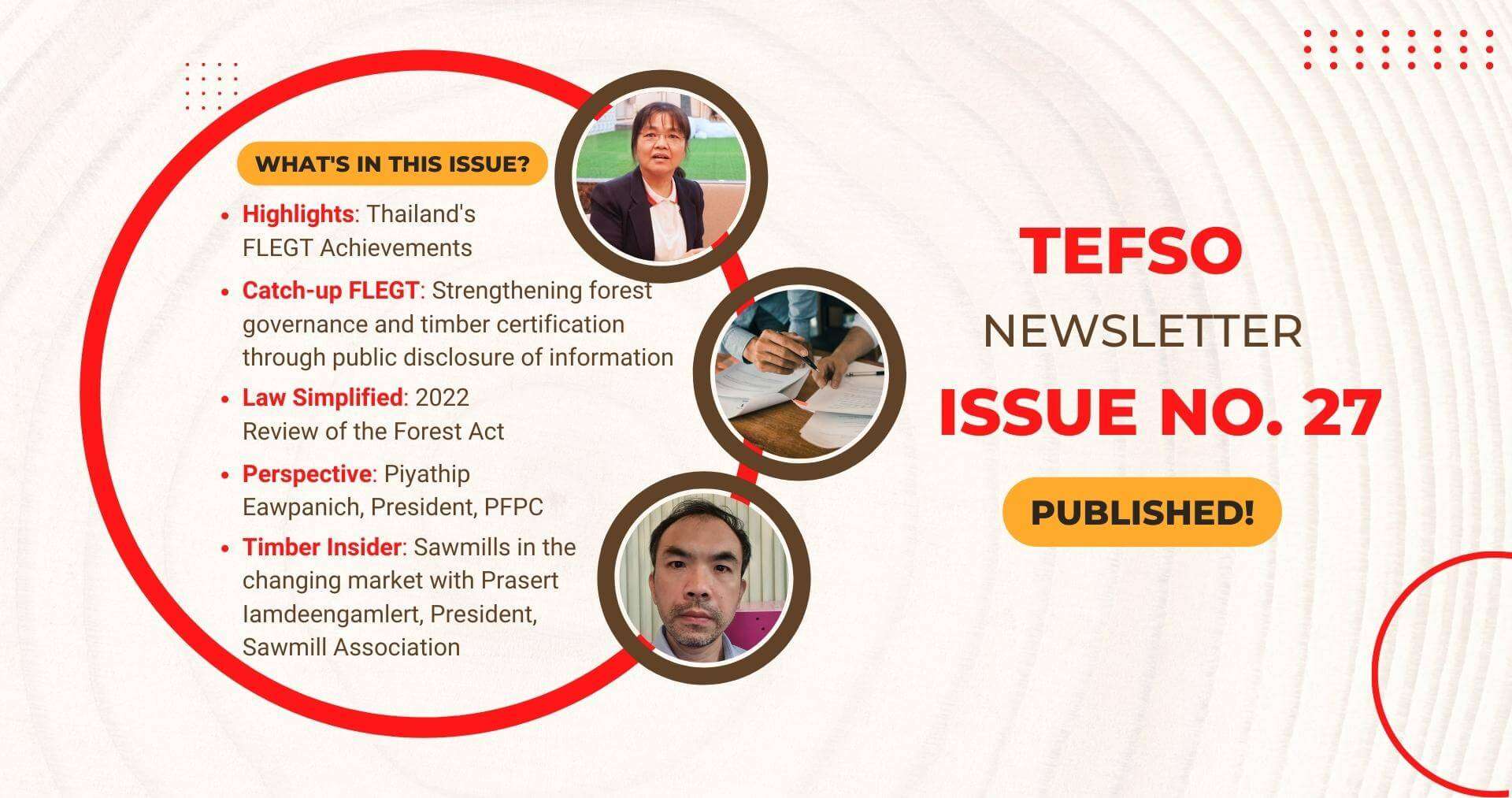|
However, the current definition leaves room for doubt since it does not clearly indicate which types of timber processing require a permit. This raised questions such as; do timber processing for personal use requires permission? What about a mobile wood chipper, a mobile wood processing that does not have a permanent place of operation?
These are the two examples of legal definitions which will be reviewed. The Legal Office also took recommendations from the FLEGT VPA Ad-Hoc Working Group on other legal issues that needed re-examination for example laws that obstruct the growth in the forest industry that the Federation of Thai Industries has submitted.
Next step plan
In the work ahead, the Legal Office would form a working group for legal review with the internal offices of the Royal Forest Department and relevant stakeholders. It is expected that the review would finish this year.
|
